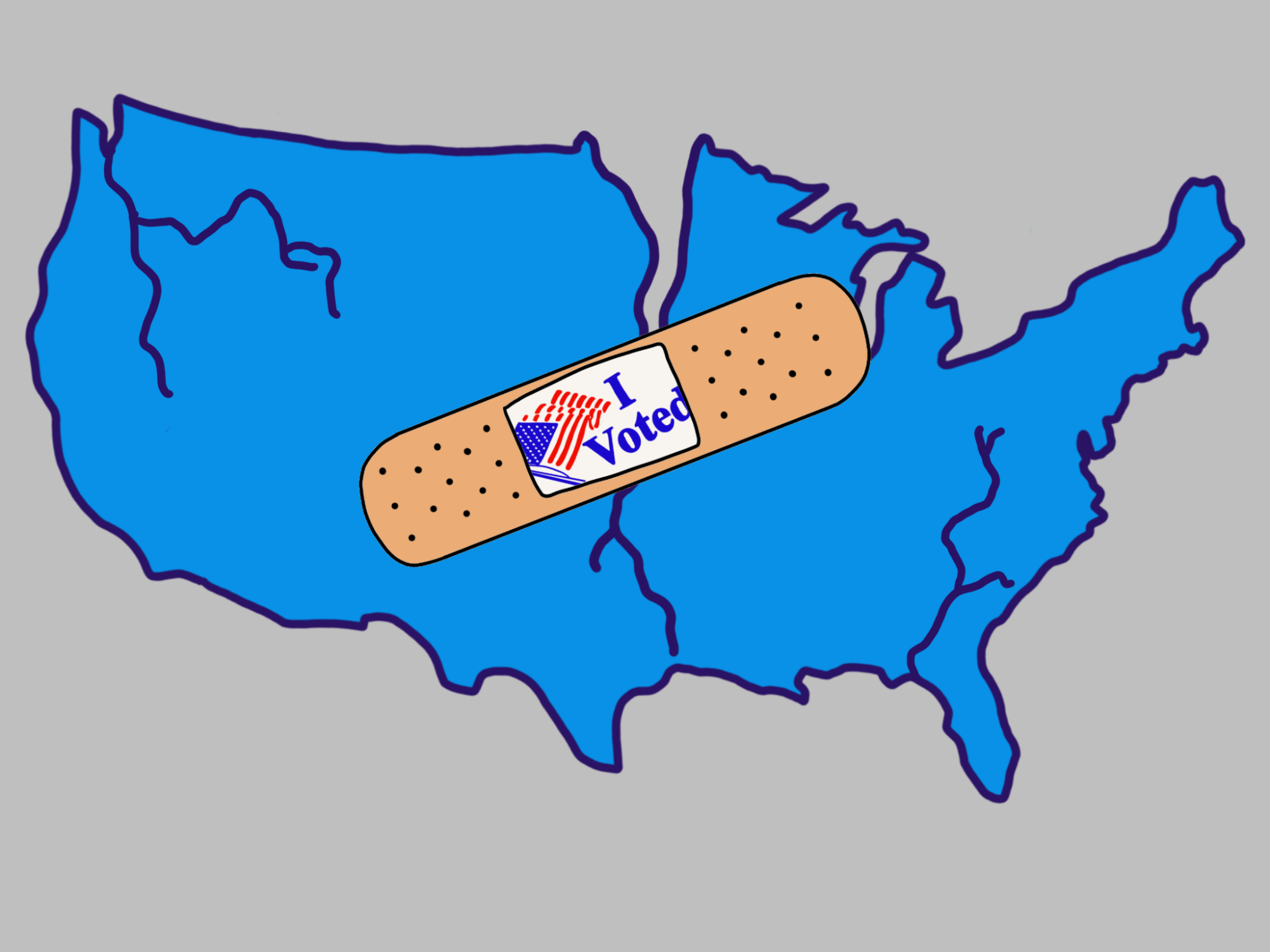
Something about watching democracy come under threat from the president, seeing climate change-induced wildfires paint California skies blood-red and scrolling past social media posts about Black people being murdered by agents of the state has unsettled America’s collective conscience. Over the past few months, Black Lives Matter has leveraged its increased media presence to organize the largest movement in U.S. history, social media activism has exploded, and young people have gotten out to vote — a lot.
Yet even as the election looms and calls to vote echo from celebrities to corporations to colleges, it is important to remember that voting alone will not save us. Casting our ballots is just the first step in a long journey toward lasting progress and, regardless of the election’s outcome, the amount of work left to save our country from its impending demise will not change.
The idea that we can simply vote and return to our everyday lives — with the expectation that the next president will fix everything — demonstrates a fundamental misunderstanding of how change occurs in America. Our country was founded because of protests, continually extended rights to marginalized groups because of protests and will continue to improve because of protests. To quietly vote and walk away from politics would be to ignore the most important work of social movements: making noise.
We cannot allow the temptation of complacency to overtake us post-election. If we do, the political fervor that captivated our country in the past year will tragically subside, leaving those we once stood in solidarity with to fend for themselves. The progress we strove for will fall by the wayside, and the future of America will be left to a governing body notorious for its inability to pass legislation and a Supreme Court with significant legitimacy concerns.
The issues of our time — criminal justice, climate change and public health, to name a few — require ambitious solutions. To accomplish our goals, we must supplement the work of voting through community organizing, volunteer efforts and political activism.
It could be argued that undertaking an effort to pursue change is too difficult, too time-consuming and too much work for one person to do. You already have enough on your plate with classes and clubs, so wouldn’t it be easier to just put your head down and focus on yourself? After all, that’s how you’ll get the institutional power to make change. I mean, even if you were to get involved, where would you start as a lowly student?
It is easy to view this work as outside of our purview, but Yalies have the unique ability — and responsibility — to get involved. We have access to tremendous institutional power because of our association with a school whose influence extends to every part of the globe. When we wield that power without using it to pursue progress, we commit an act of injustice against our community and our country. Our neutrality on societal problems becomes a pernicious evil. Our access to institutional power means that we can make outward-facing changes, but we must also look inward. While we may not have engaged in Yale’s harmful practices, such as the establishment of a private police force with little accountability, our inaction perpetuates the status quo.
To the question of how to participate in the fight for change, look around. Joaquín Lara Midkiff ’23 has written about the lack of accessibility for disabled Yalies, Sude Yenilmez ’24 has written about the elitism of extracurricular activities, Iman Iftikhar ’23 has written about gentrification in New Haven and Miranda Jeyaretnam ’24 has written about how Yale students’ risky behaviors could inadvertently harm the New Haven community. Look to those articles as a guide on how to start improving the community around you and find local organizations to give your time to.
Consider joining with student groups like Black Students For Disarmament, which advocates for abolishing the Yale Police Department, or the Yale Undergraduate Prison Project, which supports incarcerated community members and advocates for criminal justice reform. Explore Dwight Hall’s database to find and engage with the student organizations that do work you are passionate about. As you engage in social justice work, learn from your experiences and, ultimately, use them to shape how you engage with American politics –– beyond the vote.
CALEB DUNSON is a first year in Saybrook college. Contact him at caleb.dunson@yale.edu.






